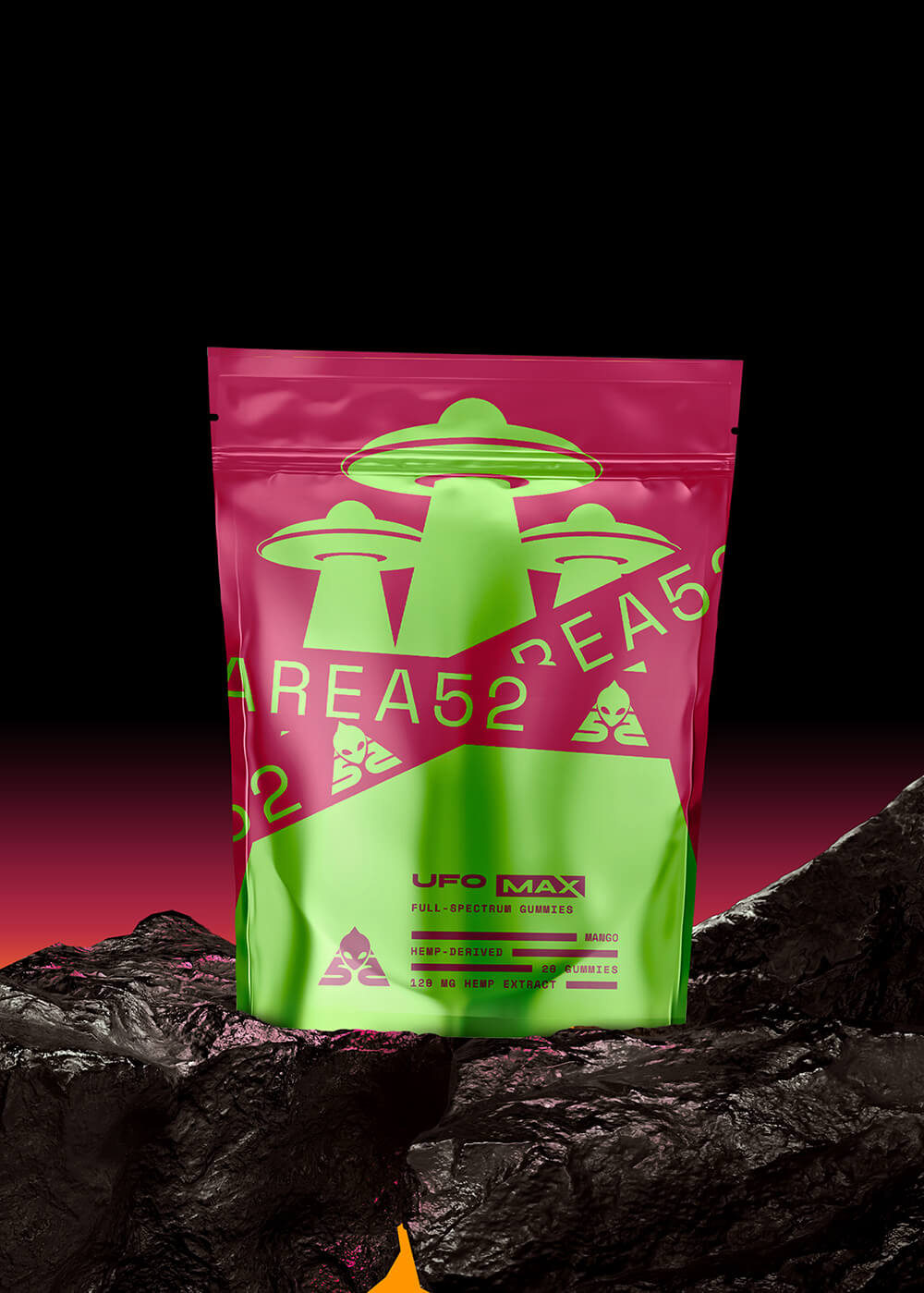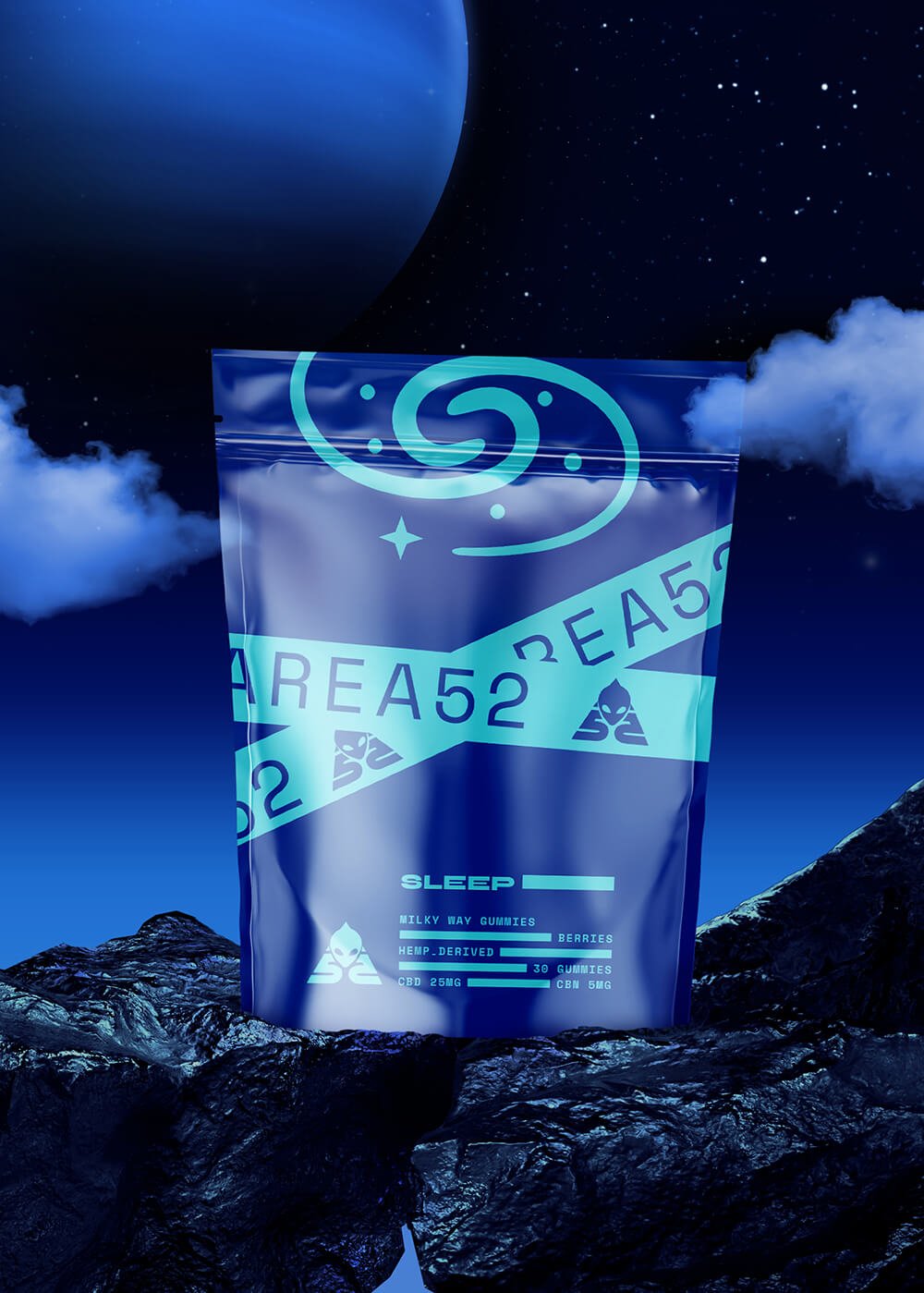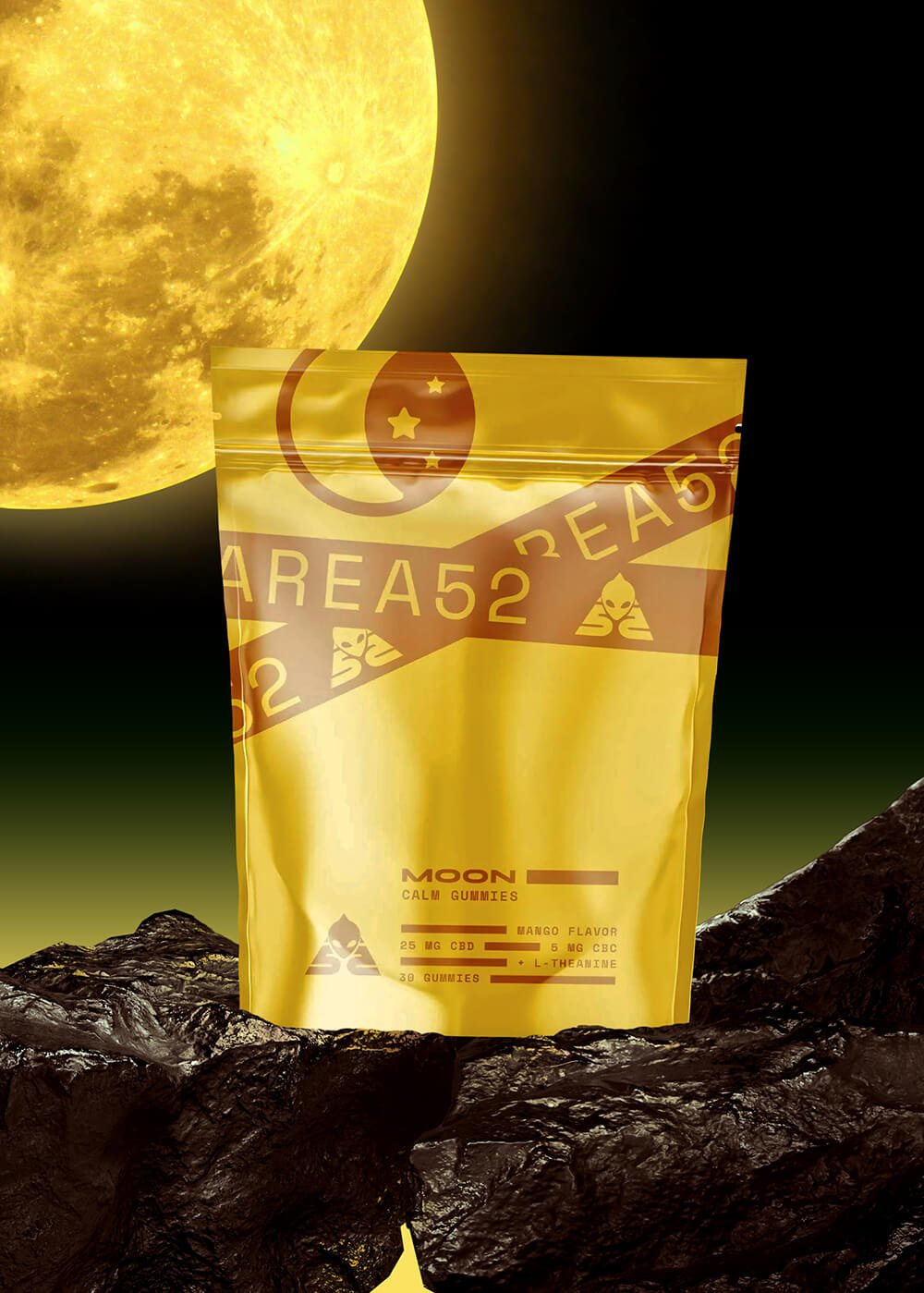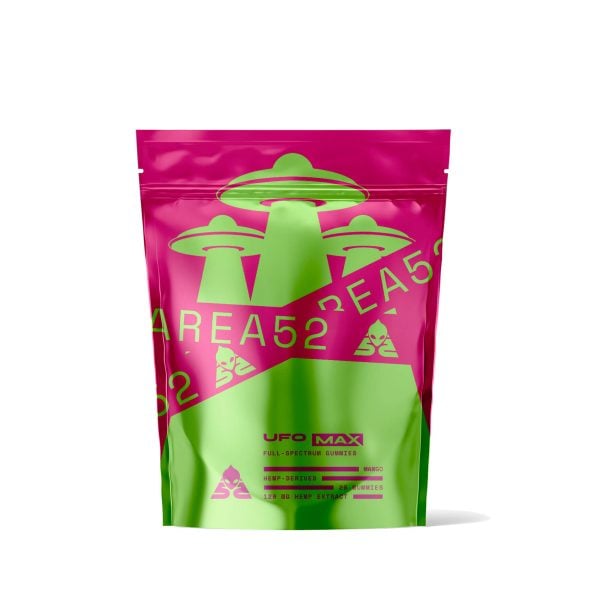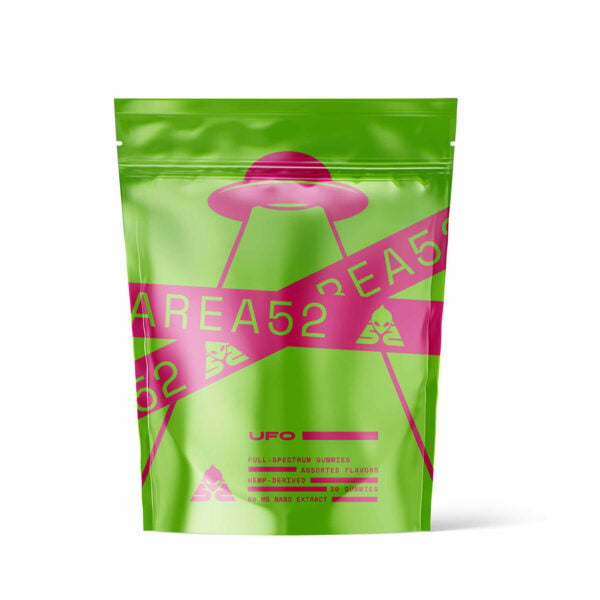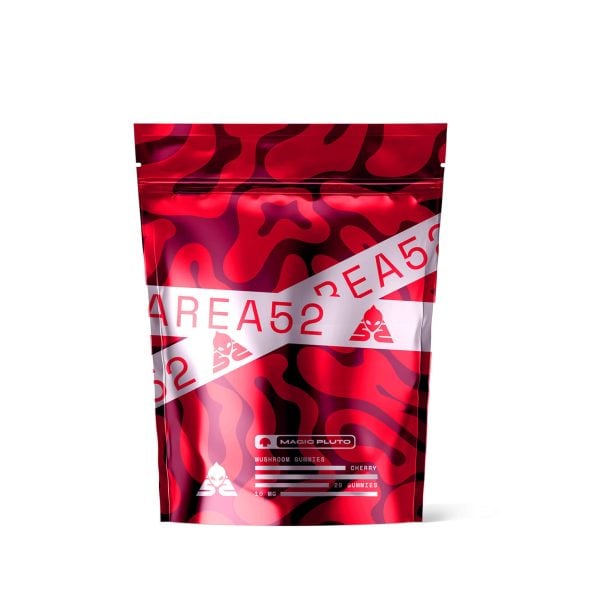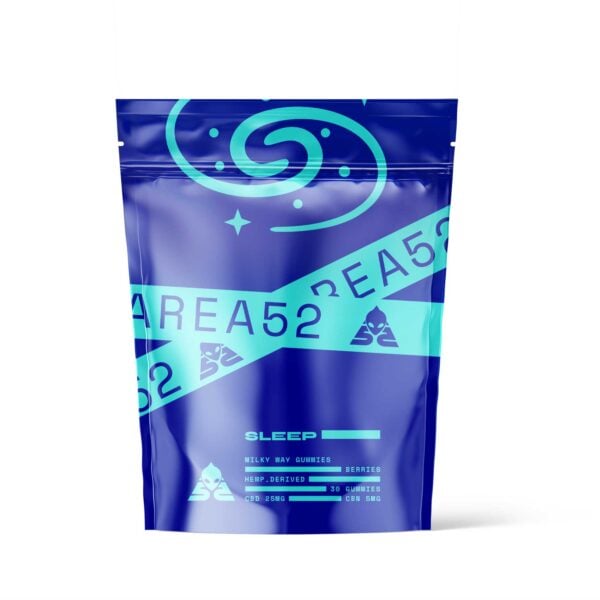What Is Cannabigerol (CBG)? Uses & Benefits
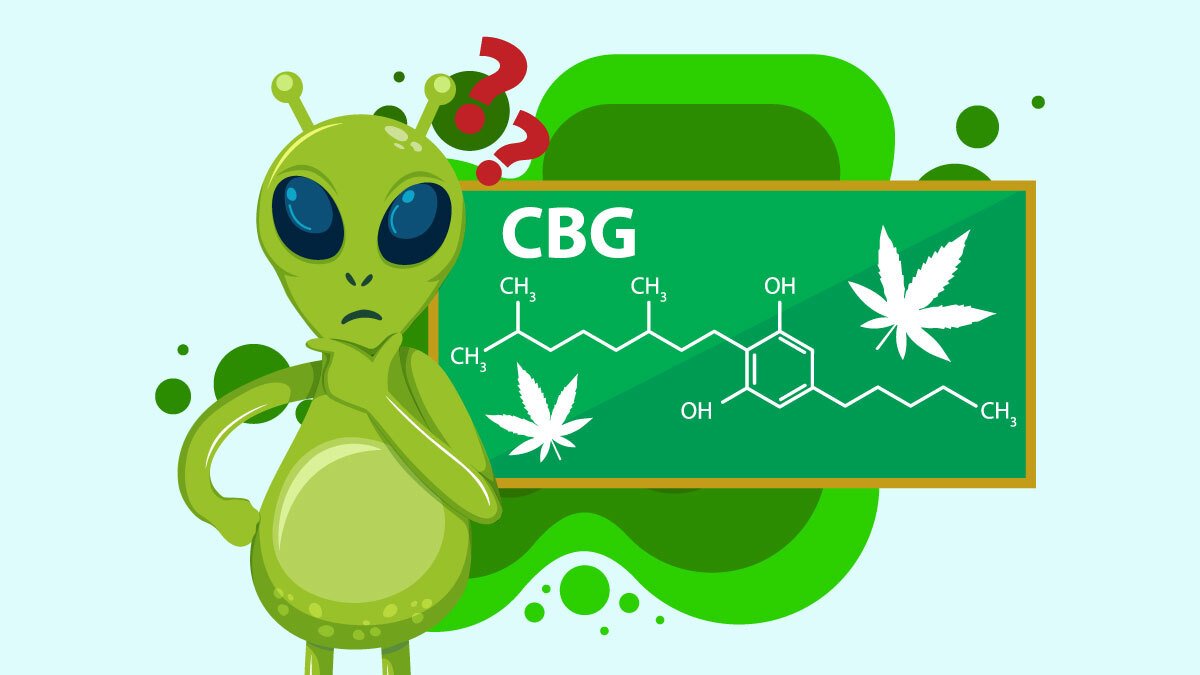
CBG is an up-and-coming cannabinoid that’s gained a lot of hype over the last couple of months.
But what is CBG, and why should we be interested at all?
Highly regarded as the “cannabinoid stem cell,” CBG appears to have a wide range of potential benefits – from supporting nervous system health to offering possible anti-inflammatory properties. While more CBG research is needed, many people find it worth exploring.
Below, we’ll cover all the core details about cannabigerol – including how it’s made, how it works, its medicinal and therapeutic effects, and where to buy it.
What Is CBG?
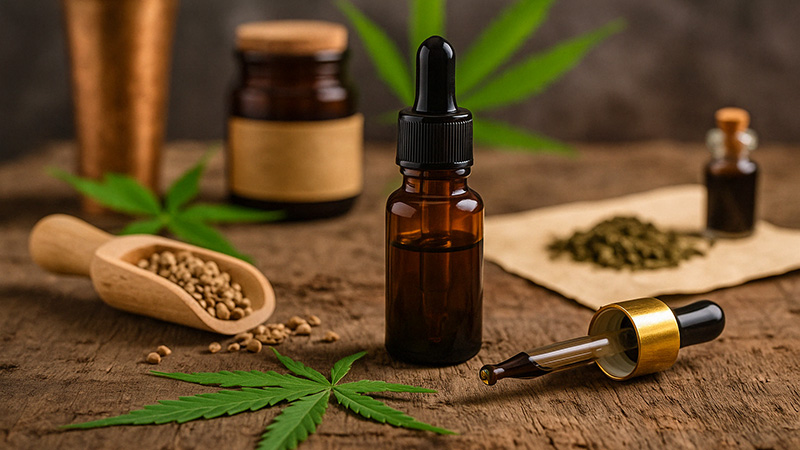
Cannabigerol (CBG) is a cannabinoid found in marijuana and hemp. According to a study published in the Cannabis Cannabinoid Res, CBG is a precursor to CBD, CBC, and THC, which is why it’s oftentimes called “the mother of all cannabinoids.”
All Cannabis sativa plant varieties make CBG. The difference between hemp and marijuana comes down to how each plant metabolizes CBG.
Marijuana plants produce more enzymes that convert CBG to THC; hemp has more enzymes that convert CBG to CBD instead.
This cannabinoid is non-psychoactive with some overlap with both CBD and THC. It’s non-psychoactive but has a mild cognitive effect similar to Delta 8 THC. Users remain clear-headed but may feel more in-tune or focused with whatever they’re working on.
This is why CBG products are most often positioned as productivity enhancers or daytime cannabinoid supplements for appetite stimulation, productivity, and general human health support.
Does CBG Get You High?
CBG is non-psychoactive, so it doesn’t produce a high. It doesn’t strongly bind to the primary cannabinoid receptors so it doesn’t produce that classic “high”.
While some people might see this as a drawback, it opens up CBG for more mainstream use, especially among medical cannabis patients.
People can take CBG during a regular working day or school day to reap the potential mental benefits without the cloudiness of psychoactive effects or high.
How Is CBG Made?
Fully “ripe” cannabis buds have about 1% concentrations of CBG — a paltry amount compared to the approximately 25% concentrations of CBD or THC in most cannabis or hemp plants.
In order to extract CBG, manufacturers extract it from young marijuana or hemp plants before it’s converted to another cannabinoid.
Recently, researchers have put some effort into genetically engineering cannabis plants to produce more CBG, making it easier and more cost-effective to produce consumable CBG products.
This process is more costly than extracting CBD because it demands more hemp material. Until further research reduces manufacturing hurdles, CBG products are typically pricier than other options.
Potential Health Benefits & Scientific Evidence
Although human clinical trials on CBG are limited, existing scientific evidence indicates possible therapeutic effects. Early studies on rodents suggest CBG may aid in blood pressure regulation, support appetite stimulant benefits, and potentially help with inflammatory bowel disease. Its anti-inflammatory properties could mean relief for individuals dealing with chronic pain or autoimmune conditions.
Anecdotal reports also point toward nervous system support and better stress management. CBG could interact with arachidonic acid pathways and transient receptor potential channels, further impacting how inflammation and pain signals are relayed.
While we await more robust CBG research, the preliminary data is promising and aligns with the notion that both CBG and CBD have synergy in modulating the endocannabinoid system.
How Does CBG Work?
Cannabinoids like CBG work by interacting with the endocannabinoid system (ECS). This system is made up of a series of receptors found throughout the body. All organisms on Earth that have a central nervous system have an endocannabinoid system — not just humans.
The two main receptors in the endocannabinoid system are the CB1 and CB2 receptors.
CB1 receptors are found in the central and peripheral nervous system and interact with your brain’s neurotransmitters, while CB2 receptors are primarily in the immune system.
CBG binds with both CB1 and CB2 receptors but doesn’t activate them. This makes it functionally different from CBD, which doesn’t bind directly to either of these receptors — nor like THC, which binds and activates them.
Is CBG Natural?
CBG is 100% natural and forms during the initial growth cycles of cannabis plants. Some confusion surrounding CBG’s natural status comes from the process used to extract it from cannabis plants.
Since CBG is only present in cannabis in low concentrations, CBG manufacturers use sophisticated extraction processes, usually involving CO2 or ethanol, to extract usable amounts of CBG from cannabis and hemp plants.
CBG vs. Other Cannabinoids
Comparing CBG vs. CBD or CBG vs. THC reveals how differently each cannabinoid behaves:
- CBG vs. CBD: Both CBG and CBD are non-intoxicating, but CBG more directly binds to cannabinoid receptors, hinting at potential for stronger anti-inflammatory support.
- CBG vs. THC: THC remains the potent psychoactive molecule, whereas CBG only provides subtle mood-lifting or focus-enhancing qualities.
- CBG vs. CBC: CBC influences transient receptor potential channels; CBG is a precursor molecule from which CBC may eventually form.
- CBG vs. Delta 8: Delta 8 THC is mildly psychoactive; CBG is not, though both have soared in the cannabis sphere due to potential health perks.
The combination of both CBG and other cannabinoids in the cannabis sativa plant might create a more powerful entourage effect, enhancing each other’s benefits when consumed together.
Is CBG Legal?
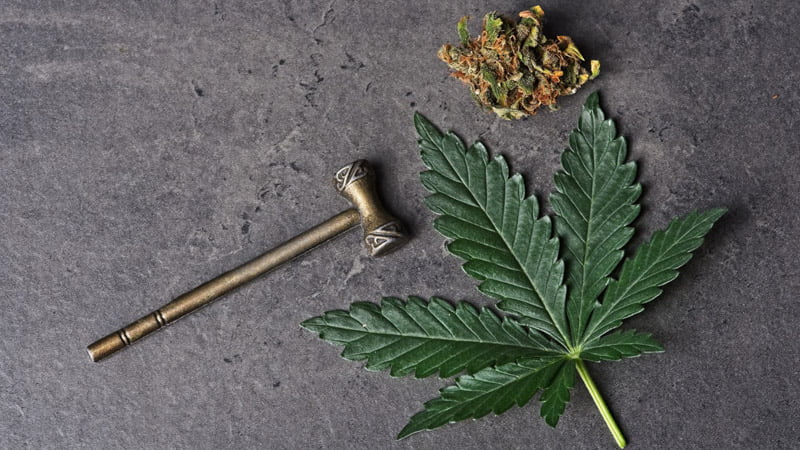
CBG is legal, but it’s a bit complicated.
CBG is not a scheduled drug, according to the United Nations Convention on Psychotropic Substances of 1971. This means that it’s not internationally regulated, so countries don’t have to regulate it in their jurisdiction.
Under the Controlled Substances Act, CBG derived from marijuana is federally illegal, while CBG derived from hemp is legal.
The 2018 Farm Bill federally legalized hemp plants and all components of them, including CBG.
When shopping for CBG, make sure to double-check the THC content. It’s common to find CBG products made with delta 8 or delta 9 THC for added effect. These products are legal in some states and illegal in others.
Is CBG Safe?
The potential CBG benefits appear well-tolerated, akin to CBD’s safety profile. Reported side effects at standard doses are minimal but can include:
- Minor dizziness
- Dry mouth and dry eyes sensation
- Potential drug interactions for those on blood thinners
- Fatigue or mild headache if taking excessive doses
Always consult a healthcare professional before adding CBG products to your regimen, particularly if you have underlying health conditions or are on medications.
How Do I Use CBG?
CBG commonly appears in:
- CBG Oil/Tinctures: Easy, sublingual use, straightforward dosing.
- CBG Capsules: Travel-friendly and discreet.
- CBG Flower: Usually raw hemp buds with higher cannabinoid content of CBG; can be smoked or vaped.
- CBG Concentrates: Potent forms, better for seasoned users.
Many prefer CBG oil for reliable dosing. Start their CBD dosage small (10–20 mg) and increase gradually, watching for changes in human health markers like focus, mood, or pain.
Exploring the Therapeutic Potential of CBG
Although studies suggest CBG offers a range of potential benefits, it’s important to remember that clinical studies are still in the early stages. Much of what we know relies on anecdotal evidence from people who report using broad spectrum or full-spectrum CBG products containing THC and CBD.
Bear in mind though that adverse effects can happen when taking excessive doses, although serious issues are rare. As more clinical studies emerge, researchers aim to clarify whether CBG’s therapeutic potential extends to a broader range of ailments – from mood support to immune regulation.
For now, early experiments suggest CBG may complement THC and CBD in some products, augmenting their benefits and contributing to a more comprehensive experience.
CBG vs. CBD: What’s the Difference?
Chemically speaking, CBG and CBD look quite similar. Both molecules are made exclusively from carbon, hydrogen, and oxygen, and they have similar chemical formulas.
However, biologically speaking, they have several significant differences.
1. CBG vs. CBD: Effect & Benefits
CBG and CBD differ in how they interact with your body’s cannabinoid receptors. CBG interacts readily with CB1 and CB2 receptors, while CBD does not, giving them different effects.
Despite these differences, they also have similar effects; the prime example is that CBD and CBG users report that they both help manage racing thoughts and anxiousness.
2. CBG vs. CBD: Medical Research
Research on the effects of CBG is scarce compared to the troves of research available on CBD.
However, CBG research is becoming more prominent as scientists investigate it as a potential treatment for several conditions that CBD is ineffective at treating.
3. CBG vs. CBD: Availability
A key difference between CBG and CBD is availability. Producing CBG takes approximately 20 times more plant matter than producing the same amount of CBD, making CBG prices comparatively higher.
CBD is still more popular due to its ready availability and reasonable prices. Most companies that could produce CBG choose to manufacture CBD instead, which simply involves waiting a bit longer for the plant to mature. A major breakthrough in CBG production techniques is likely required for CBG to match CBD’s popularity.
How to Make the Effects of CBG Stronger
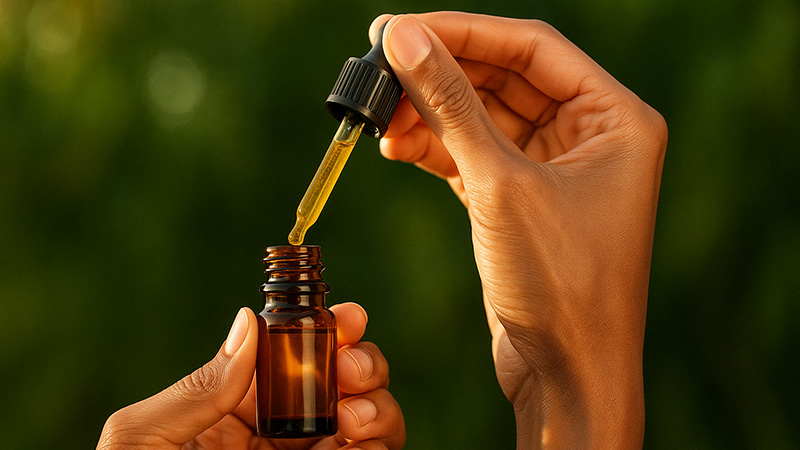
If you’re interested in taking CBG to improve your productivity and enhance your cognitive performance, you can do a few other things to make it even more effective.
1. Only Use CBG When Necessary
First, and most importantly, is only to use CBG when you really need a mental boost.
Because CBG binds to CB1 receptors, repeated frequent use can reduce your body’s sensitivity to CBG, making it less effective over time.
Save CBG for when you have a big test coming up or are entering a crunch period at work.
2. Build Good Habits
Second, build other productivity-boosting habits into your daily life. Getting enough sleep, eating a balanced diet, and getting regular, moderately intense exercise will help improve your mental clarity and focus.
Put yourself in a position to be as productive as possible; when you take CBG, you’ll be starting from a better place than you otherwise would. This allows CBG to provide the little extra push you need to get into the zone rather than relying on it to do all the work by itself.
3. Use CBG With Stress-Reduction Practices
Finally, try to limit your stress by practicing sound mental health habits. Daily meditation is an excellent way to reduce stress, and lower stress levels are associated with better cognitive performance. Keeping a daily journal can also reduce stress by relieving your brain of the burden of remembering everything you’re thinking.
CBG & Its Therapeutic Effects
According to the Harvard Medical School, most CBG studies are done on animals. Early CBG research spotlights promising therapeutic effects that could help with inflammatory bowel disease, neuropathic chronic pain, and potential nervous system regulation. Some studies on rodents even suggest CBG might curb nitric oxide overproduction, a mechanism possibly relevant to blood pressure regulation.
Remember, robust human clinical trials remain limited, so while anecdotal endorsements are strong, further scientific evidence is crucial to confirm these potential perks.
Key Takeaways: What Is CBG?
CBG is a less-known cannabinoid found in small amounts in cannabis plants. It has similar effects to CBD but is considered the best cannabinoid for improving cognition, focus, and productivity.
Unfortunately, CBG products are significantly harder to find and more expensive than CBD products due to how difficult it is to extract from marijuana and hemp. Mature cannabis plants contain about 20 times less CBG than CBD or THC, making it expensive to produce even small amounts of CBG.
There have been some promising techniques for increasing CBG yields in the last few years, but a significant amount of work still needs to be done to take CBG to the next level as a consumable product. It will also likely become cheaper as it grows in popularity and more companies begin to manufacture it.
Overall, CBG could be a helpful addition to your routine, but don’t expect it to work any miracles.
Frequently Asked Questions
1. What is the main use of CBG?
While not officially “approved” for anything, many use CBG for potential anti-inflammatory effects and nervous system support. It acts on the cannabinoid receptors and is appealing to those wanting mild, natural relief.
2. Which is stronger: CBG or CBD?
They’re different rather than “stronger” or “weaker.” CBG binds more directly to certain receptors, while CBD primarily works indirectly. Effects largely depend on the individual’s body and health goals.
3. Is CBG good for blood pressure regulation?
Early studies hint it may help. CBG might influence blood pressure regulation via its reported effects on vascular and inflammatory pathways. However, confirm with a doctor first if you have existing blood pressure concerns.
4. Does CBD get you stoned?
CBD is also non-intoxicating. At best, it offers gentle relaxation or stress relief without significant psychoactive effects.
5. Why is CBG research still limited?
CBG occurs in smaller amounts, and extraction used to be cost-prohibitive, limiting mainstream study. As production becomes more accessible, expect more human clinical trials to further validate or uncover potential uses.
References:
- Harvard Health. (2022, September 26). Beyond CBD: Here come the other cannabinoids, but where’s the evidence? https://www.health.harvard.edu/blog/beyond-cbd-here-come-the-other-cannabinoids-but-wheres-the-evidence-2021032322190
- Russo, E. B., Cuttler, C., Cooper, Z. D., Stueber, A., Whiteley, V. L., & Sexton, M. (2022). Survey of Patients Employing Cannabigerol-Predominant Cannabis Preparations: Perceived Medical Effects, Adverse Events, and Withdrawal Symptoms. Cannabis and cannabinoid research, 7(5), 706–716. https://doi.org/10.1089/can.2021.0058
